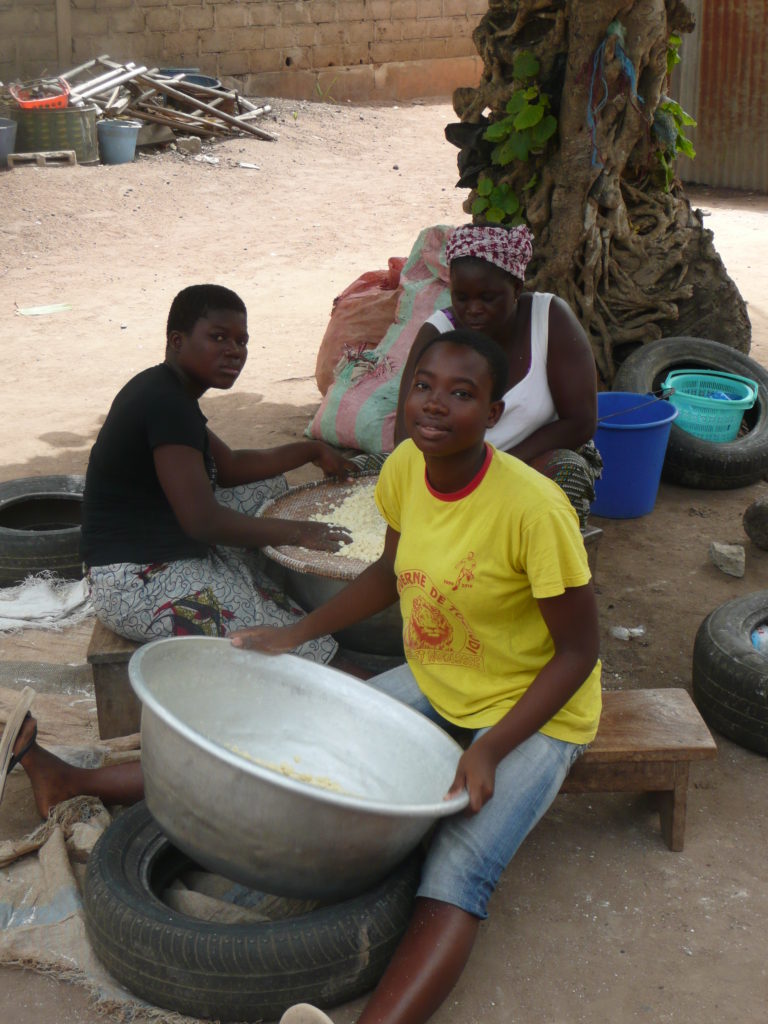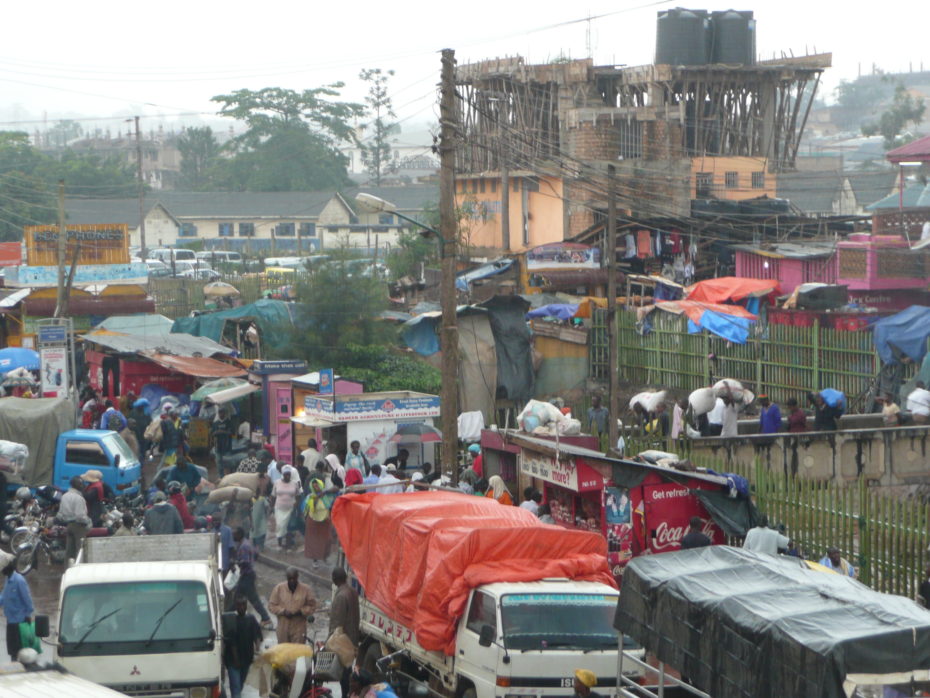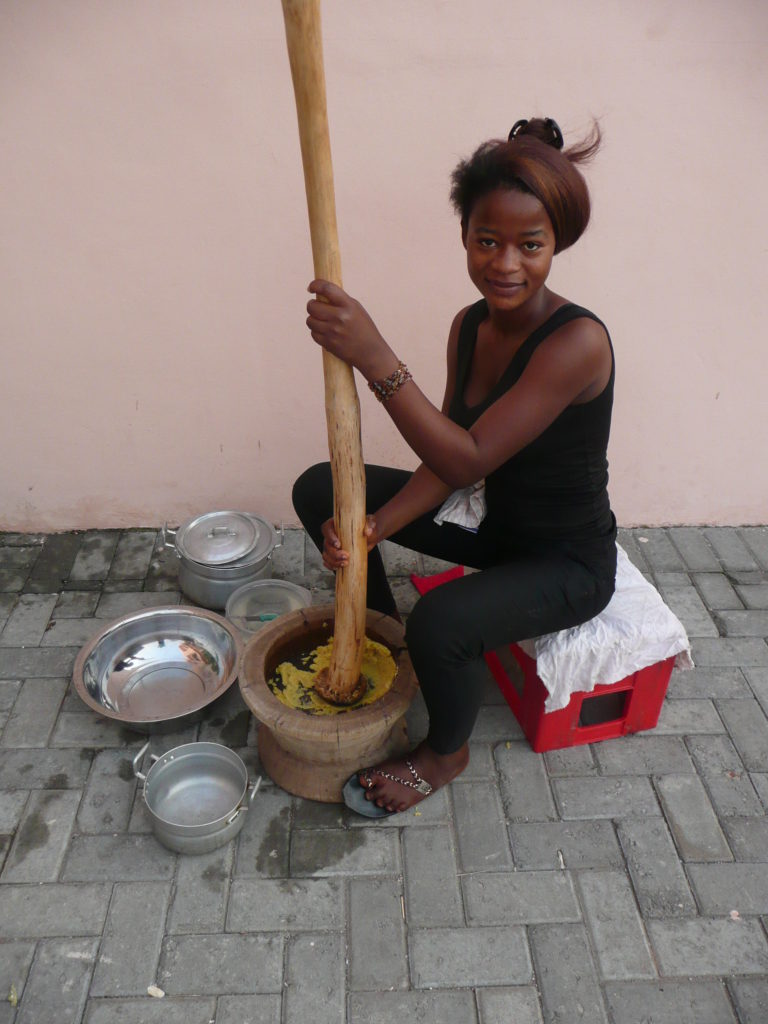“Lazy Africans”, would be an unsurprising comment from the comfort of the back seat of an air-conditioned, tourist’s 4×4 but it’s one you will hear from Africans themselves, which would indicate that it’s something that should not be dismissed quite so lightly. There can hardly be a country in the world entirely free of bone idle gits, all too happy to blag a free meal at someone else’s expense but is Africa a special case? The answer must undoubtedly go beyond simplistic notions as damming whole portions of a continent’s population with the crime of fecklessness.
First and foremost the criticism tends to be directed towards African men as it has to be said that the image of a woman sitting on her fat arse, picking her nose, while a bevy of compliant men do her bidding will not be found in the tourist brochures with the caption of “the typical charm of African village life”. In fact there are only two primary means of obtaining a truly fat arse: one is by having a husband who is sufficiently rich to make years of investment into cultivating such an asset; the other is by dint of shrewd business sense and hard work that the woman is able to make such an investment herself, as well as support her own family first. Thus a fat arse can be something to be admired, viewed with jealousy by women and lust by men; not something to be tagged with the label of lazy.
Men are seen as lazy because it’s easy to see the women doing the work: out on the streets selling; bent over in the fields digging or standing over huge wooden mortar bowls pounding yam or millet with trunk like pestles and let me assure you that having had a go it is bloody hard work, quite why the world arm wrestling championships are not won by Africa women every year I will never know.

Women as usual not being lazy, here making attieke (a cassava based food similar to cous cous) in Cote d’Ivoire
Whilst for many women their role in the family is much the same as ever, the gradual evolution into a cash economy has stripped men of their role in life if they cannot find paid employment. In the West this process has gone on long enough for society to start to question the roles of men and women and create a new mode of family life but you can’t tell me that an unemployed husband in the Britain of the 60’s would say to his wife, “you put your feet up love and I’ll do the dishes and change the baby’s nappy”. If African family life needs to go through some kind of similar, social transformation it is best done amongst themselves not under the spotlight of a braying crowd of disapproving white feminists. In all likelihood it will be the African diaspora, having absorbed some Western values, who will have a role in shaping such change as they interact with their home countries and are less likely to be seen as meddling in other’s business. More and more women, who won’t take any more shit, will make themselves heard and it is they who will ultimately bring about change. The voices of strong-willed African women prepared to suggest a different view of female roles in many diverse aspects of life are maybe not heard enough: Leymah Gbowee of Liberia ( http://en.wikipedia.org/wiki/Leymah_Gbowee ); Anjelique Kidjo of Benin ( http://en.wikipedia.org/wiki/Ang%C3%A9lique_Kidjo ); or the sadly deceased Wangari Maathai of Kenya ( http://en.wikipedia.org/wiki/Wangari_Maathai ), to randomly pick three examples who don’t conform to traditional roles demonstrate that a woman can be respected for taking a different stance.

To make your shop stand out from the competitors it can take a lot of time each morning to set up such a display
The legacy of slavery included an important message for the alleged slackers of today, that idleness was to be lauded and hard work degraded, the “good” Christians sat around drinking gin and tonic, while the “bad”, black people did the hard work. But lets not let Islam off the hook, after all, Muslims imported their brand of slavery to Africa centuries before a white man ever stood on its shores. In the religion’s defense it must be said that Mohammed, who owned black slaves himself gave them some rights and protections which were never offered under later, European slavery, however the underlying message remains the same, even if the Muslims were not sloshed on gin and tonic.
We are often told by our illustrious leaders in Britain that the indolent unemployed are infected with benefits culture, “why bother working when the government pays them to sit in front of daytime TV, drinking super strength lager”. You may want to accuse Africa of many things but benefits culture is not one of them: if you ain’t got a job, you ain’t got any money. It’s the support of family and religious institutions, which in turn depend on the generosity of others, you rely upon and with one job typically supporting around 8 other people it’s hardly an incentive for revelling in the freedom of unemployment. If our far better funded western education has not managed to equip the sofa bound with the means of escaping its gravitational pull, is it fair to be quite so uncharitable to an unemployed African who is no less likely to be depressed by his predicament? So is it really laziness that defines these peoples of two different continents in the same unfortunate situation?

If you want to make it in the this kind of environment – down-town Kampala, Uganda, you won’t get very far if you can’t put the effort in.
So I can’t be accused of trying to impose our values upon others, let’s take two examples given to me by African friends:
In a town with an adjacent forest graced with fine mango trees, some “lazy” locals opted to spend their modest funds buying mangos from the market, rather than going out to pick them or God forbid, trying to sell them to say, passing motorists.
A woman sat, with her young son every day on the pavement killing time, while her husband worked on the building site opposite. With no street sellers for a good walk in either direction why did she not start selling cold water to passers-by and thirsty labourers, as is done on a million other roadsides?
Surely, if such people lack something it is initiative, not the drive to do something. African streets throng with motivated micro entrepreneurs, men as well as women doing their utmost to support their family, all having a go at selling whatever they can, no matter how small. Fight your way through the heaving masses of markets in Kampala or Monrovia and try to tell me there is a culture of laziness in Africa. One failure of initiative you see is a tendency for many to simply sell what everybody else is selling, rather than finding a gap in the market to exploit. This default option could well stem from an ancient practice in rural regions still in evidence today: centuries ago Africans beat the West to free market economics, by individual communities exploiting their environment to produce what they could do so most efficiently and trading surpluses to obtain what they could not do so most efficiently. Thus the people with the best soil for onions grew them and the people with the best clay made pots and specialised in that. Take almost any long bus journey in West Africa and you can still stock up on particular goods at competitive prices at many stops along the way, even including such unlikely commodities as cushions. Villagers moving to the big city in search of opportunity may bring this business mindset with them.
Thankfully the world is not entirely populated by the masses hooked on the opiates of high-flying business reality TV and copies of How to make your first million, society would soon tear itself apart if we were all driven by flashing dollar signs. Someone will always be sitting around on their fat arse thinking, “I am sure there was something I could be doing instead………..never mind, X factor’s on the telly in 40 minutes”, or maybe their African counterpart is enjoying the shade of a lush mango tree and contemplating a stroll a bit later in the day to that nice lady who sells those delicious mangos. Those stressed out by fast-paced, demanding jobs could probably benefit from a few hours under a mango tree once in a while.
Is it really such a crime? But, if you could help the wife out round the home once in a while, she would really appreciate it.







Fabulous piece Graham, really enjoy reading your blog and discussing contents with other like minded people! Hope all is well with you
Love
Tina